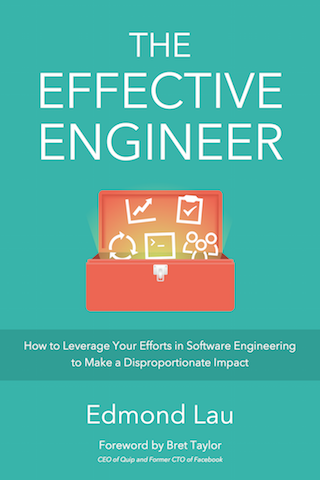The Most Intense Year of Growth in My Life — What I’ve Learned

“I am jumping into new possibilities!” With those words, I threw myself out of the plane and hurtled 14,000 feet toward the ground — screaming for my life.
I lost my sense of up and down as my body tumbled in the air for a few seconds. The first thing I noticed as I finally barreled earthwards face-first was that my mouth dried almost instantaneously from the wind blasting into my face. I had to close my mouth and stop screaming.
I want to say that the next 60 seconds of free fall stand out as a pivotal memory — one that marked my commitment to a new and bolder life. But in all honesty, the brief moments before my skydiving instructor yanked the parachute’s rip cord happened so fast — it was a total blur. I needed to rewatch the video footage for it to really sink in that I had JUMPED OUT OF A FREAKING PLANE.
In some ways, I feel the same way about my past year — it’s been the most intense year of growth in my life. I completed five months of coach training and ten months of an intensive leadership development program through the Coaches Training Institute and turned my work at Quip into an arena for practicing leadership. The year has really challenged me on what it means to be a better leader, engineer, friend, and husband. So much has happened that I also need to slow down to let the lessons sink in.
Unpacking everything I’ve learned will take time and multiple posts. To start, I spent one day last week reviewing all my journal entries from the past year.
Here are the most powerful lessons I’ve learned:
On Living a Full Life
We’re 100% responsible for our experience of life. We may not control our external circumstances, but we can choose how we experience and respond to them.
Taking 100% responsibility frees us — it empowers us to take action and shape our lives. Avoiding responsibility traps us — it leaves us as helpless passengers who just watch as our lives unfold. What aspect of your life do you want to take more responsibility for shaping?
Tomorrow’s not promised. Every time that I hear or read that someone unexpectedly has passed away — say due to brain cancer or a freak accident — I feel deep sadness. It’s a life story abruptly cut short.
I’m then reminded of Steve Jobs and how he would look in the mirror every morning and ask himself, “If today were the last day of my life, would I want to do what I am about to do today?” If the answer is “no” too many days in a row, it’s time to ask, “What needs to change?”
Everyone struggles with not feeling “good enough” — you’re not alone. Some people struggle with imposter syndrome, feeling like their technical abilities aren’t good enough. I’ve struggled — more in the past, less so now — with feeling not good enough to take up my friends’ time.
Not being good enough comes by many names, including unworthiness, self-judgment, and shame. “Shame needs three things to grow out of control in our lives: secrecy, silence, and judgment,” writes Brené Brown in The Gifts of Imperfection. Share your story of “not good enough” with the people you trust to start believing in your own worthiness.
Name your limiting beliefs to start breaking free. For almost all my life, I made up a story that “success creates distance.” And so I’d agonize and hide successes about my book, about my talks, or about my mention in the New York Times from people close to me, fearing that they would judge me for directing attention to myself.
A few months ago, I decided to publicly share how much pain this story had been causing me. Readers started responding with similar stories. Friends thanked me for letting them know and congratulated me on my accomplishments. Sharing my successes actually created more connection! It was a life-changing breakthrough for me, and I’ve stopped second guessing my sharing of successes ever since. Naming the limiting belief set me free. Where do you second guess yourself? There might be a limiting belief lurking, waiting to be named.
Our playing small does not serve the world. We all have inner critics that aim to sabotage us — they start inner dialogues that instill fear, that get us to hide and play it safe. And in those moments, we need to remind ourselves, as I do with with my coaching clients and with myself, “What would your best self do in this situation?”
I framed Nelson Mandela’s quote in my room to remind myself to play big: “There is no passion to be found in playing small – in settling for a life that is less than the one you are capable of living.”
Looking good gets in the way of being true to ourselves. When we’re afraid of looking bad to others, we hold back. We don’t do the things we want, say the things that need to be said, or reach for what we’re capable of. Our self-judgment stops us from fully expressing ourselves.
But you know who’s not afraid of looking bad? Little kids. There is a 3-year-old kid in all of us waiting to be expressed. Find the kid. Treat life as your playground. Go play.
Invest in a coach for every important aspect of your life. Athletes have coaches to achieve peak performance — why not give yourself the same benefit in your life? This year, I’ve invested in a life coach, a personal trainer, and a marriage coach, and I even invited a close friend who’s an adventure coach to design a 2-day adventure for my birthday to bring out the silly kid in me. Each coaching experience has stretched me to grow more.
On Relationships
Ask for 100% of what you want 100% of the time. My wife sometimes gets upset at me for not doing something she wanted that she thinks I should’ve known about. I’ll then gently remind her that while I have many superpowers, mind-reading is not one of them. We all make this mistake. You might not get all of what you want, of course. But if you don’t ask for what you want, how will people even know?
Grow your ability to have uncomfortable conversations. This year, I embarked on an uncomfortable conversation challenge, to stretch my comfort zone and to explore any tension I felt with other people. And so I had long conversations with homeless people. I asked a stranger on the street for $10. I asked Lyft drivers, “What’s your dream?” I told a senior engineer he intimidated me. I cold called friends out of the blue (which is uncomfortable for me). I had hard conversations with my wife.
What Tim Ferriss wrote feels true, “A person’s success in life can usually be measured by the number of uncomfortable conversations he or she is willing to have.” And each uncomfortable conversation this year has increased my capacity to stay with discomfort, to say what needs to be said.
The stories we make up about other people get in the way of building trust. We spend so much mental energy in our own heads, making up assumptions about why people do the things they do. Someone gives us critical feedback, and we make up judgmental stories about how he might not respect us or support us. Someone does something that bothers us, and we make up resentful stories about how she’s not considerate or how she might not like us. Someone isn’t pulling their weight, and we make up bitter stories that he’s lazy or incompetent.
Clear up those assumptions to build trust. Starting with “I make up a story that you …, and the impact of that on our relationship is …” can be a powerful invitation to have an honest dialogue around what the real truth is. 1
Discover and share what’s important — it’s a shortcut to a deep conversation. I don’t like small talk, and for a long time, I’ve felt stuck connecting with new people I meet — how do we actually get to a meaningful conversation?
For the past year, I’ve been experimenting and practicing how to quickly create deeper connections with strangers. And I’ve gotten Uber and Lyft drivers to share their biggest dreams, parents to share beautiful stories of what they’re most proud of about their kids, and fathers to share that they want to tell their kids “I love you” more because it wasn’t a big part of their culture growing up. People love to talk about what’s important to them. “What’s important about that for you?” is a simple but powerful question for creating deeper connection.
Explicitly design your relationships. The very first skill that I teach at the engineering circles I run at Quip is to explicitly design the alliance with the people they work with. For example, when designing an alliance with your manager, you might discuss questions like: What do you want out of the relationship and the 1:1s? What do you most want to get of your job? What can your manager do to best support and challenge you?
So often, we never have an explicit conversation to get this important information out into the open. And yet that one conversation can become a powerful context for all subsequent ones. What relationships of yours could benefit from a more explicit design?
Make implicit things explicit to build trust. Powerful things happen when you name what’s implicit and being assumed — emotions, tension, desires, needs, or the stakes involved. When things are implicit, they’re faceless and hard to deal with. When they’re made explicit, which can sometimes be scary, they become solvable problems and powerful moments for accelerating trust.
For instance, if you’re feeling upset or angry or frustrated in a heated debate but you don’t name the emotion you’re feeling, the emotion will color everything you say, and you’ll end up talking around it. If you actually say “I’m feeling frustrated” or “I’m sensing frustration from you,” however, you can then have a conversation about the frustration and the real source of tension.
On Leadership
Invest in people first, to build exceptional teams. I’ve worked at places that focused on the mission first or the business first. My three and a half years at Quip have shown me that investing in people first leads to happier, more creative, more engaged (as measured by some of the lowest attrition rates I’ve seen in the industry), and more effective teams.
The people-first approach to leadership at Quip has led to amazing grassroots initiatives like engineering circles, a bi-weekly feedback sessions program, tech lead mentorship, coaching relationships, and our mentoring and onboarding programs — all aimed at helping people grow. And the business now powers some of the most valuable companies and recognizable brands in the world — 30,000 Facebook employees use the product every single week! What are some ways you can invest in the people you lead?
Lead from vulnerability — it’s unbelievably powerful. Recently, I did a storytelling hour at work to give a behind-the-scenes look into my two year adventure in self-publishing The Effective Engineer, including the peak moments and pits of despair, the tech and the marketing, and the hard-earned lessons learned along the way.
I used to not share raw, personal stories, partly because I didn’t enjoy being in the spotlight with people close to me (I’m fine being in the spotlight in front of strangers) and partly because vulnerability can be uncomfortable. What I’ve learned is that sharing real, personal stories creates an invitation for others to share their own lives, including their values and insecurities. At work, sharing personal stories lets us see each other not just as co-workers, but also as human beings — something that we can forget amidst heated arguments about work.

Grow into the Engineering Leader that People Love Working With
Learn frameworks and tools for more effective leadership from a year of coaching 50+ tech leads, managers, directors, and CTO's.
Enroll people in your quests and missions. As leaders, we often hesitate to ask for help. We might believe that we have to do things alone. Or we’re too embarrassed to ask for help. Or we want to minimize the pain of failure by not sharing our journeys until they’re done. I’ve learned this year that everything is so much easier when you have co-leaders, partners, and supporters. Enrolling others makes our quests more fulfilling and more likely to succeed, and it gives people to support us through troughs of sorrow and to celebrate our peak moments with.
Historically, I would never tell people I was preparing for a big talk — like the ones I gave at Google or Facebook — partly to lower the stakes. Instead, I’d just work on my own to create slides, and maybe I’d practice with my wife. For my most recent StartCon keynote to 1,000 engineers in Sydney (on what it really means to an effective engineer), however, I asked my friend Sophia at work to coach me on my talk. I did two dry runs with most of the engineering team. Not only did I get amazing feedback, but sharing rough versions of my talk with the team ended up meaning more to me than the actual keynote itself.
Share the impact that people have on you. The impact we have is often unintended and non-obvious. Say someone does something that we really appreciate or that moves us — if we don’t tell them, they might never know. They might even stop doing it, and what a shame that would be. Or say someone does something that really bothers us or has a negative impact on the team, but we never tell them and so they, being unaware, keep doing it. Our being “nice” does everyone a disservice.
Leaders give feedback about other people’s impact, and they ask for feedback about their own impact. What feedback is sitting in the back of your mind that you have yet to share? And what impact has my writing had on you that I don’t know about? I’d love to hear about it at hi@effectiveengineer.com.
Honest and clear conversations would solve most human problems. Many of these lessons revolve around themes of conversations. What I’ve learned is that so many of our problems stem from misunderstandings or assumptions that would go away if we actually talked with each other. An analysis of startup post-mortems shows that many startups fail because people don’t have honest conversations with each other or with their customers. 2
That’s why Jean Hsu and I focused our recent leadership workshop on teaching tools for Powerful Conversations for Engineering Leaders. And it’s also why we’ll be continuing our work in raising the bar for engineering leadership this year.
Psst! Our last workshop sold out in a week. Leave your email to get early bird access to this year’s in-person and remote workshops.
And One More
The minute you appreciate what you have, joyfulness replaces suffering. My wife and I started a dinner ritual inspired by Sheryl Sandberg where we each share three things: the worst moment from the day, a win that we want to celebrate (which we’ll mark with a high-five!) and something — large or small — we’re grateful for. We’ll take a moment to close our eyes and fully feel appreciation for it. And when we do that, it’s hard not to smile and feel joyful.
It’s one of my favorite takeaway habits from the past year that I want to share with you.
Thanks to Diana Kimball and Chen Xiao for reading drafts of this post.

Raise the bar for your own leadership
Learn frameworks and tools for more effective leadership from a year of coaching 50+ tech leads, managers, directors, and CTO's.
I learned this framework through my time at the Coaches Training Institute. ↩
“The Top 20 Reasons Startups Fail”, CB Insights, September 27, 2017. ↩

“A comprehensive tour of our industry's collective wisdom written with clarity.”
— Jack Heart, Engineering Manager at Asana
“Edmond managed to distill his decade of engineering experience into crystal-clear best practices.”
— Daniel Peng, Senior Staff Engineer at Google

“A comprehensive tour of our industry's collective wisdom written with clarity.”
— Jack Heart, Engineering Manager at Asana
“Edmond managed to distill his decade of engineering experience into crystal-clear best practices.”
— Daniel Peng, Senior Staff Engineer at Google


















Leave a Comment